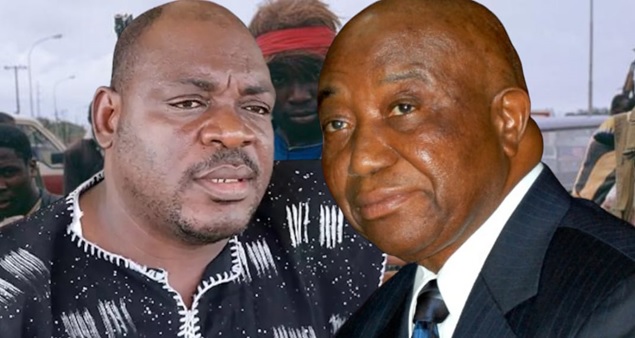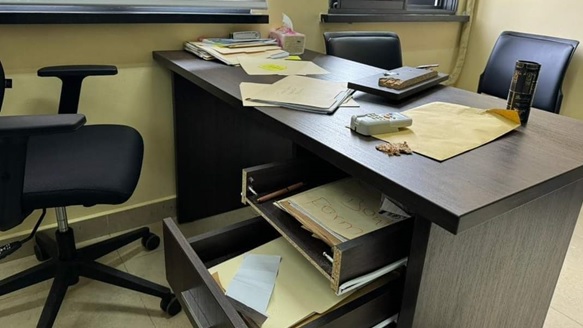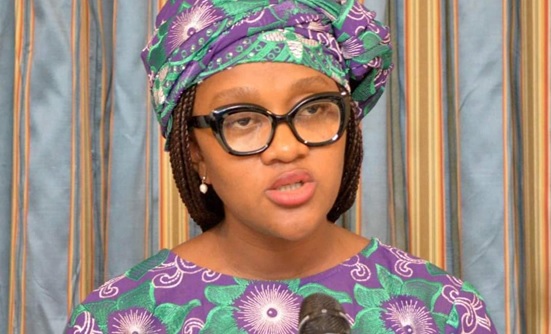MONROVIA – In the labyrinth of Liberian politics, the alliance between President Joseph Nyuma Boakai and former rebel commander Joshua Milton Blahyi, infamously known as General Butt Naked, has cast a shadow over the Unity Party’s moral integrity. Blahyi, notorious for his brutal tactics and supernatural beliefs during Liberia’s civil war, now finds himself rubbing shoulders with the country’s ruling establishment, prompting a storm of criticism from various quarters, including human rights activists and political commentators.
General Butt Naked: A Grim Past
Joshua Milton Blahyi earned his fearsome moniker “General Butt Naked” due to his habit of leading assaults unclothed, believing this made him invulnerable to bullets. As a commander for the United Liberation Movement of Liberia for Democracy (ULIMO-J), Blahyi’s reign of terror during the civil war was marked by horrific violence, including human sacrifices and cannibalism. His forces, often comprised of child soldiers, perpetuated atrocities that left deep scars on the nation.
During the 1990s, Blahyi led several dozen soldiers—known as the Naked Base Commandos—who fought primarily in Monrovia. Many of these soldiers were children, and like their commander, they often wore nothing but shoes and magic charms. In a distorted emulation of animist tradition, Blahyi claimed that this made them “immune to bullets.”
In 2003, during Liberia’s Truth and Reconciliation Commission (TRC), Blahyi was the first warlord to testify. His candid admission of killing an estimated 20,000 people and performing ritualistic murders was both shocking and pivotal. “Everything I was doing was devilish, was wrong, was inhuman,” he confessed, claiming his conversion to Christianity had led him to seek redemption.
Blahyi’s testimony was front-page news in Liberia. Wearing an immaculate white dress shirt, he spoke with surprising candor. As photographers’ cameras clicked in the gallery, he hung his head and appeared to weep. One of the commissioners asked Blahyi to estimate the number of people he had killed. “If I were to calculate—if you’re talking about April 6th, or throughout the war, or every evil I have done, it should not be less than twenty thousand,” Blahyi said.
He then described his use of human sacrifice and cannibalism to gain magical powers. “I needed to make human sacrifices to appease the said deities, or the gods,” he said. “Every town I entered . . . they would give me the chance to do my human sacrifices, which included innocent children.” He then told the story of his conversion to Christianity, which took place shortly after the April 6th battle.
The Unity Party’s Controversial Alliance
Despite his past, Blahyi has been integrated into the fold of President Boakai’s Unity Party, a move that has sparked outrage. Critics argue that this partnership contradicts Boakai’s previously vocal stance against human rights violations. Vandalark R. Patricks, a prominent political commentator and social justice advocate, highlighted the dissonance, noting that Boakai’s association with a confessed war criminal like Blahyi taints his administration.
The opposition Coalition for Democratic Change (CDC) also condemned the alliance during a press conference on May 27, 2024, labeling Blahyi a “confessed criminal” and a threat to democracy. The CDC accused the Boakai administration of reviving Blahyi’s “wickedness” by collaborating with him during the 2023 elections.
Political Commentator and social justice advocate, Vandalark R. Patricks also cautioned President Boakai, saying, “At this point, we hope the Rescue Mission takes cognizance of previous and current human rights abuses and bring justice to the victims by prosecuting the perpetrators.”
The War Crimes Court and the Quest for Justice
Amidst this controversy, President Boakai signed an executive order in early May 2024 to establish a war crimes court. This initiative aims to address the atrocities committed during Liberia’s civil wars from 1989 to 2003, which resulted in approximately 250,000 deaths. The court, operating in accordance with international standards, seeks to bring justice to the victims of these conflicts, despite concerns that it might reopen old wounds and challenge the amnesty law that helped end the fighting.
This development has been largely welcomed by activists and civil society groups advocating for accountability. They argue that a war crimes court is essential for true justice and reconciliation in Liberia. However, the inclusion of Blahyi within Boakai’s circle raises significant questions about the sincerity of the administration’s commitment to justice and reconciliation.
Some in Liberia have opposed the creation of the war crimes court, saying it risks reopening old wounds and could undermine the amnesty law that helped end the fighting. This has led to a polarized public opinion, with some fearing that the court might destabilize the fragile peace.
A Nation’s Struggle with Reconciliation
Blahyi’s transformation from a feared warlord to a self-proclaimed Christian convert and author of five books, including his memoir “The Redemption of an African Warlord,” has been a complex narrative. His story of redemption has been lauded by some as a powerful example of personal change. Yet, his integration into the political mainstream, particularly within a government professing to champion human rights, remains contentious.
Human rights activists and ordinary Liberians alike question President Boakai’s decision to align with a figure as polarizing as Blahyi. They argue that true reconciliation and justice in Liberia require consistent moral and ethical standards, which seem compromised by this controversial alliance.
The critics believe that aligning with Blahyi undermines the moral authority of the Boakai administration. It sends a conflicting message about the government’s commitment to human rights and justice, given Blahyi’s admitted past atrocities.
Many Liberians are left wondering why President Boakai would choose to incorporate Blahyi into his circle, especially given the weight of his past actions. The alliance appears to be a political gamble, one that could have far-reaching implications for Boakai’s administration and the nation’s path to reconciliation.
The establishment of the war crimes court is a step towards accountability, but it also raises questions about how justice will be balanced with political realities. The involvement of international institutions, including the United Nations, in the court’s operations is expected to bolster its credibility, yet the shadow of Blahyi’s past looms large.
As Liberia seeks to heal from the wounds of its civil wars, the partnership between Boakai and Blahyi serves as a reminder of the complexities and challenges in navigating post-conflict justice and reconciliation. It highlights the difficult choices leaders must make between political expediency and ethical integrity.
President Boakai’s partnership with Joshua Milton Blahyi presents a profound ethical dilemma for Liberia. As the country navigates its path towards justice and reconciliation, the shadow of past atrocities continues to loom large, challenging the integrity of its leaders and the resilience of its people. The coming months will be critical in determining whether Liberia can truly move forward in its quest for justice and healing.







